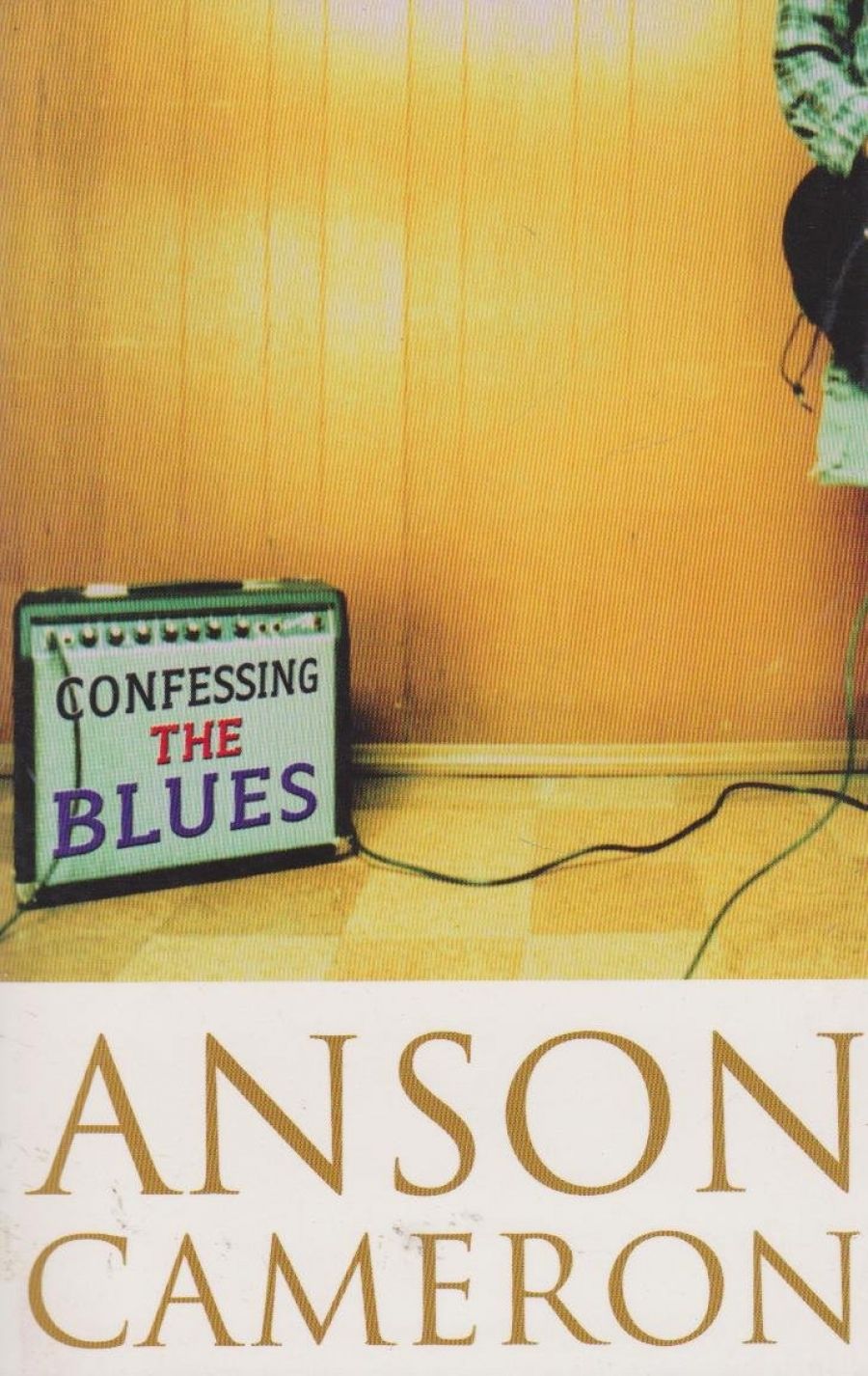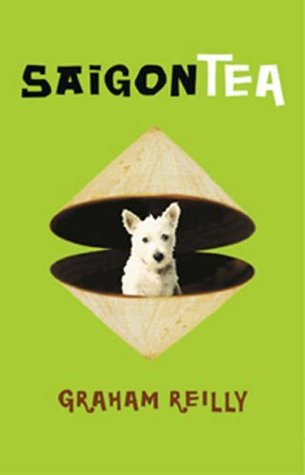
- Free Article: No
- Contents Category: Fiction
- Review Article: Yes
- Custom Highlight Text:
Comedy, Angela Carter once quipped, is tragedy that happens to other people. Laughter is both an expression of our hard-bitten knowledge of the random cruelty of a universe that stubbornly resists our attempts to control it and an act of defiance in the face of that cruelty. Or, to put it in simpler terms, if you didn’t laugh, you’d cry.
- Book 1 Title: Confessing the Blues
- Book 1 Biblio: Picador, $22 pb, 363 pp
- Book 2 Title: Saigon Tea
- Book 2 Biblio: Hodder & Stoughton, $29.95 pb, 281 pp
- Book 2 Cover Small (400 x 600):

- Book 2 Cover (800 x 1200):

- Book 2 Cover Path (no longer required): images/1_SocialMedia/2020/December/META/33553184._SY475_.jpg
The novel tells the story of Mark, a wannabe rock star who, after ten years of trying, can no longer hide from the fact that he is, on his own and everyone else’s terms, a failure. Struggling with the inescapable reality of a career in tyres instead of as a superstar, a fragmenting psyche and the murder of his father, apparently at his own hands, Mark fixates on one man, the DJ Be Good, as responsible for what he perceives as the lie he was sold, and resolves to destroy him. Be Good is an underground prophet, a massager of careers, a proselytiser for the music that matters, cool in every way Mark is uncool. But these successes disguise a deeper emptiness: Be Good is getting old, is a failure as a father, and has somehow begun to lose contact with the principles and passions that drove him. It comes to a head when a Samoan security guard at the gates of Government House begs him not to go in and take the Order, he is there to accept: ‘Don’t dance with the man,’ the guard implores. ‘Times aren’t that gone.’ Be Good goes anyway.
The third player in Cameron’s little psychodrama is the Rock God, Mako, a schizoid alter-ego of Mark’s. Built up over too many years of desperate masturbatory fantasies about stardom, Mako is a Ziggy Stardustesque dream of the perfect rock star, ‘lean and oiled in a G-string’, sexually ambiguous, a modern god beyond morality or attachment, and possessed of an unfortunate tendency to overwhelm Mark’s own fragile self in moments of stress.
As with the warring novelists in Martin Amis’s The Information, Mark and Be Good are really just two sides of the same artistic coin, two halves of a whole. One retains his integrity (for what it’s worth) and is unsuccessful, the other cashes his in and accepts the rewards. Put them together and you might just have that Platonic ideal of the rock star, Mako, while apart they’re merely pale reflections of the dream they both are chasing. It’s a duality that’s only made the more apparent by their mutual desire for, and eventual sharing of, the same woman, a seventeen-year-old checkout chick called Amarita.
Of course, taking the piss out of the music industry is about as difficult as taking the piss out of the literary world. But, though there’s always satisfaction in a bit of levelling, being risible and being a rewarding subject for satire are subtly different things. I suspect that Cameron sees this, since he’s not really interested in the music industry at all, or even in his fairly half-hearted subplot about the secession of Be Good’s Radio Station, Triple X, from the Commonwealth of Australia as a tactic to try and forestall a slew of libel actions. This might account for the novel’s apparent inability to get a purchase on the world it inhabits. There’s no real physicality or texture to the world of Confessing the Blues, nor does its depiction of the music business quite ring true. What is provided, by contrast, are lists and adjectival fugues, the sort of overwriting that in writers as disciplined and intelligent as Cameron usually betokens a deeper inability to get at whatever it is they’re after in the work.
Where the novel does work is in its depiction of the tyre-yard run by Mark’s father and, later, by Mark himself. It’s here, beneath the shadow of the Westgarth Bridge, in the men who work in the yard, in the work of the tyres itself, and in Mark’s defeated little caravan with its blacked-out windows that the mini-tragedy of Mark’s failure takes on its real dimensions, in all their humour and pathos, rather than in his project to destroy Be Good.
Graham Reilly’s Saigon Tea is a much more conventional work than Confessing the Blues. Part of a growing trend for humorous novels, presumably driven in Australia by the immense success of Nick Earls (who’s on hand to give Reilly a plug on the cover) and Jessica Adams, it throws together an eclectic combination of Glaswegian mates, Australian meatworkers and Vietnamese criminals. The plot, such as it is, turns on a scheme by Nguyen Nam Cam, a Saigon crim boss, to use the gambling debts of Scots-born Danny Canyon to muscle in on the bar Danny runs with his Vietnamese-born wife, Mai. After an unpleasant encounter with some of Nam Cam’s men, Danny calls in his brother Frankie to help him try and find a way to outwit Nam Cam at his own game.
The novel, despite its underworld colour, is more amiable than anything, lacking the self-lacerating satirical ambitions of Cameron’s and concerned with the bond between the brothers and ideas of home. But it is hampered by an awkward structure, in which most of the first two-thirds is spent on exposition and background, so it takes an awfully long time to get to the action. More crucially, there’s never really anything at stake in Saigon Tea. Like the drink for which it is named – ‘a little Jim Beam and much milk. Girl drink many and not get drunk,’ as one of the hookers in Danny and Mai’s bar explains – the world of the novel is essentially benign, and not one in which the dangers the characters face ever take on the necessary dimensions to give the comedy any real urgency.
In part, this seems to be an editorial problem. Reilly doesn’t seem to have been pushed hard enough about shaping his words to get the suppleness and spark they need to be truly funny. Too many conversations are related verbatim when they are little more than scene-setting, and there are too many that have the boom-tish rhythms of sitcom. This seems a pity, because Reilly shows, in places, that he can really write, particularly in his descriptions of Saigon, which do convey a sense of the city’s heat and vitality.


Comments powered by CComment